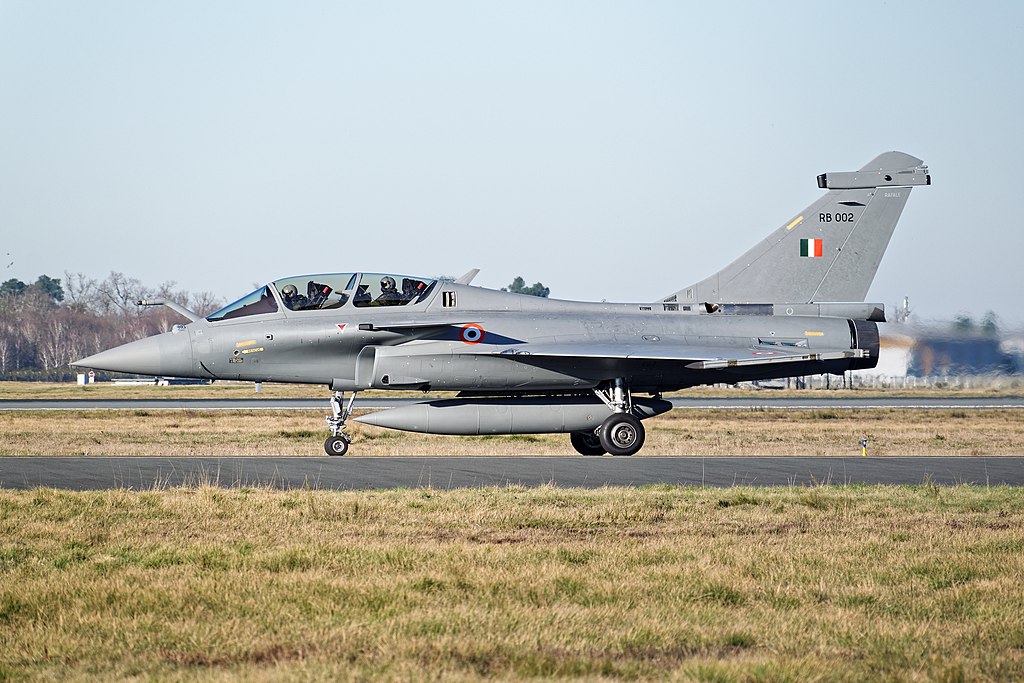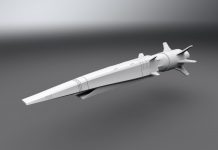
On May 28, 2025, during French President Emmanuel Macron’s official visit to Jakarta, Indonesia took a significant step toward expanding its defense cooperation with France. In a ceremony attended by Macron and Indonesian President Prabowo Subianto, Indonesia’s Minister of Defense signed a letter of intent to purchase more French defense systems. The prospective acquisitions include additional Dassault Rafale fighter jets, Scorpène-class submarines, light frigates, and CAESAR artillery units.
While the exact numbers and timelines for these procurements have not been disclosed, French outlet OpexNews speculated that the deal could encompass up to 18 more Rafale jets. This development reflects Indonesia’s broader efforts to modernize its military capabilities in response to a complex and evolving security environment in Southeast Asia. It follows the 2022 agreement with France, which covered 42 Rafales and other assets as part of an $8.1 billion modernization initiative.
Indonesia’s current defense infrastructure includes a mix of aging American F-16s and Russian Su-27/30 aircraft, many of which face difficulties operating effectively in the nation’s vast and fragmented geography. With more than 17,000 islands to secure, Indonesia requires flexible, modern platforms capable of air, sea, and land operations.
The Dassault Rafale, central to the latest discussions, is a twin-engine multirole fighter capable of handling air superiority, ground attack, and reconnaissance missions. It features advanced systems such as Thales’ RBE2 AESA radar, the SPECTRA electronic warfare suite, and a range of munitions including Meteor air-to-air missiles and SCALP cruise missiles. These capabilities mark a significant upgrade over the older radar and electronic systems of Indonesia’s current fleet.
Still, the Rafale has not escaped scrutiny. Recent but unverified reports from South Asia claim that Indian Rafales were downed during a confrontation with Pakistani J-10C jets on May 7, 2025. Although not confirmed, such reports have prompted Jakarta to re-examine its procurement strategy, highlighting the importance of pilot training and effective tactical integration.
Beyond air power, the letter of intent also involves the acquisition of French-made Scorpène-class submarines, equipped with air-independent propulsion (AIP) systems that allow prolonged submerged operations. These subs would significantly boost Indonesia’s undersea capabilities, currently limited to a small fleet that struggles to cover its exclusive economic zone. With modular combat systems and the ability to launch torpedoes and Exocet missiles, the Scorpène offers a balance between stealth, capability, and cost.
Indonesia is also eyeing light frigates, potentially based on France’s Gowind or FDI-class designs. These vessels would help enforce maritime claims in areas like the Natuna Islands and counter regional threats. Designed for flexibility and network-centric warfare, the French frigates are expected to feature radar systems, vertical launch systems, and combat management software capable of real-time coordination with other naval units.
Rounding out the proposed acquisitions is the CAESAR 155 mm truck-mounted artillery system, which combines strategic mobility with precision strike capabilities. Already in Indonesian service since 2012, additional CAESARs would provide highly mobile firepower, especially useful in remote or rugged terrain. However, integrating these systems with older artillery like the M101 howitzer could pose logistical challenges.
Indonesia’s defense posture has long relied on a patchwork of Western and Russian equipment, often resulting in compatibility issues. Integrating high-tech platforms like the Rafale and Scorpène into this diverse mix will require significant investment in training, infrastructure, and supply chain coordination. Delays in the delivery of the 2022 Rafale order—first aircraft expected in 2026—highlight the complexity of such modernization efforts.
Nonetheless, these acquisitions mark a shift toward more interoperable, advanced defense systems. With an estimated 33 F-16s and several Su-27/30 fighters currently in service, Indonesia faces significant readiness challenges. The Rafale’s advanced sensors and long-range operational capabilities would enable more effective patrolling of contested zones like the South China Sea.
Naval enhancements, including new frigates and submarines, would bolster Indonesia’s ability to protect maritime trade routes such as the Malacca Strait. CAESAR units, meanwhile, are expected to support ground operations in complex terrains such as those encountered during counterinsurgency campaigns in Papua.
However, financial constraints remain a critical concern. Indonesia’s defense budget for 2025 has been reduced by 6%, and defense spending remains below 1% of GDP. Although France has committed to technology transfers and joint production—key elements of Indonesia’s defense industrial strategy—the affordability of sustained investment in French hardware is uncertain. Jakarta’s preference for diverse suppliers is evident in its exploration of alternatives such as Turkey’s KAAN and China’s J-10C.
Despite these challenges, France has become an increasingly prominent defense partner for Indonesia. Past contracts have included joint production arrangements, such as the local assembly of Thales radars and Scorpène submarines. Macron’s Southeast Asia tour, including stops in Vietnam and Singapore, reflects France’s broader ambitions to deepen its footprint in the Indo-Pacific region.
During the joint press conference, Macron expressed optimism that the agreement would expand bilateral ties and lead to further military cooperation. Subianto highlighted the strategic value of these platforms and underscored the importance of joint development and technology sharing.
Still, the lack of transparency around the deal’s exact scope has raised questions. La Tribune cited sources suggesting the Rafale order may be limited to between 8 and 16 aircraft—significantly fewer than some had anticipated. BFMTV reported that a formal signing could occur during France’s Bastille Day celebrations on July 14, where President Subianto is expected as a guest of honor.
Ultimately, Indonesia’s pursuit of French systems reflects its desire to enhance operational readiness and sovereignty over its territory. However, the success of this shift depends not just on acquiring hardware, but on effective integration, budget management, and long-term sustainability. The coming years will reveal whether Indonesia can balance its strategic ambitions with the realities of defense procurement and implementation.




